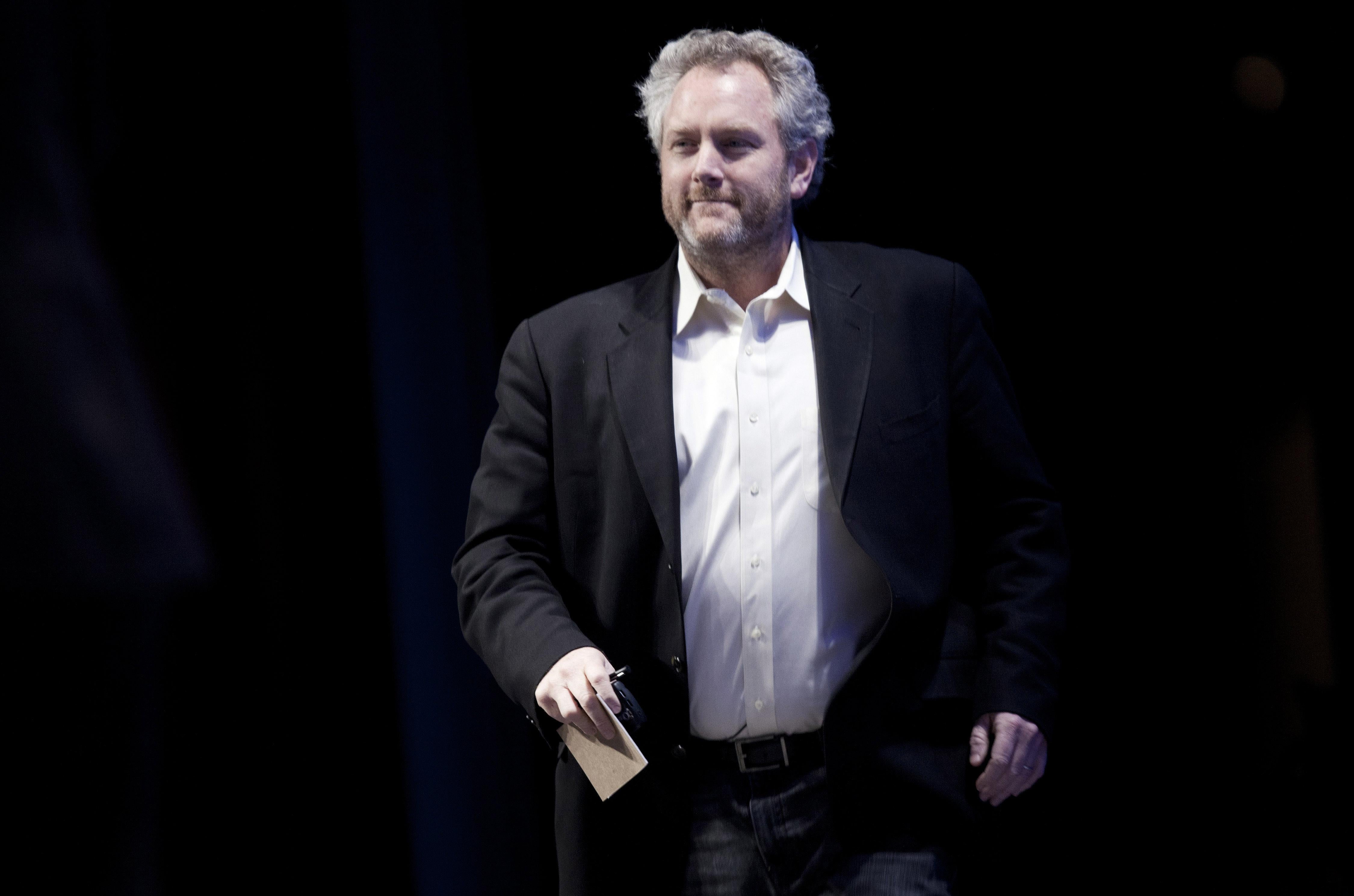The final panel of CPAC took place during the media-titillating straw poll, a short walk away from the Gaylord hotel’s main ballroom. A standing-room crowd had just watched Hating Breitbart, Andrew Marcus’ splendid portrait of the late media pioneer and his “haters.” When the film wrapped, a too-large panel filed onstage to discuss the movie. Breitbart.com’s Larry O’Connor and video journalist James O’Keefe were there to share memories of their late friend. John Fund and USA Today’s David Mastio were there to put Breitbart’s work in historical context. Marcus stuck around wearing a white shirt with Breitbart’s #war hashtag to describe how the movie was made.
Oh, and there was Ari Rabin-Havt of Media Matters for America, to work pro bono as a human speedbag.
The line-up was jerry-rigged to explode. Breitbart’s friends (and Mastio) got to speak first, describing the late videomaker as someone who “can never be replaced” (O’Connor) and someone with an inspiring “philosophy” (O’Keefe). Rabin-Havt, who’d been lured into the panel after a hallway conversation with Marcus, sat patiently through this.
“I’m gonna come as a friend,” said Rabin-Havt.
“Ohhhh, come on!” snarked someone in the crowd.
“I see why I’m the middle,” said Fund.
“I’m serious,” said Rabin-Havt. “I’m not a screamer.” He proceeded to credit Breitbart with tactics that weakened the movement from within. “You attack low-level employees,” he told O’Keefe, “stretching incompetence for corruption!”
The crowd repeatedly burst into jeers, moreso when Rabin-Havt sounded patronizing.
“The left shouts the right down all the time,” said Marcus, calming the room. “We will not play their game.”
So the noise quieted as Rabin-Havt read a careful statement. “You spend so much time speaking to each other, you no longer have the ability to speak to the American public,” he said. “You define Andrew Breitbart not by what he believes, but by his perceived enemies. In doing so, you cede all the power to me.”
That was the end of the truce. O’Keefe spoke next and took the chance to attack the media as a whole for subjecting him to unreasonable standards while delighting in his setbacks. O’Connor opened a smartphone and read Media Matters headlines that mocked the right, asking Rabin-Havt to defend them. When Rabin-Havt said that the liberal media-watchers never engaged in smears, Breitbart.com editor Joel Pollak shot his arm up, and kept it up. If Breibart himself was an irresistible comic, Pollak has all the whimsy of a gravedigger whose dog was just run over by a flaming schoolbus.
The resulting exchange was captured by Breitbart’s videographers; I appeared in it, awkwardly, toward the end.
Now, the story in question is loaded with on-the-other-hand disclaimers, including an actual disclaimer reminding readers that “Andrew Breitbart was never a birther.” Pollak writes that “the errant Obama biography in the Acton & Dystel booklet does not contradict the authenticity of Obama’s birth certificate” and “several contemporaneous accounts of Obama’s background describe Obama as having been born in Hawaii.” I think Pollak had Rabin-Havt dead to rights.
But did the spat prove Rabin-Havt’s point? I spent a lot of time talking to left-wing and right-wing activists in the fall of 2009, after the ACORN videos—recorded by O’Keefe, released by Breitbart—pulverized the group. At the time, left-wing activists admitted that they’d been sleepwalking through the rise of the new-New Right, thinking them goofballs wearing teabags. They fought back with more independent research and more ridicule. They went on to lose in 2010, but since then, haven’t they been foiling the right?
